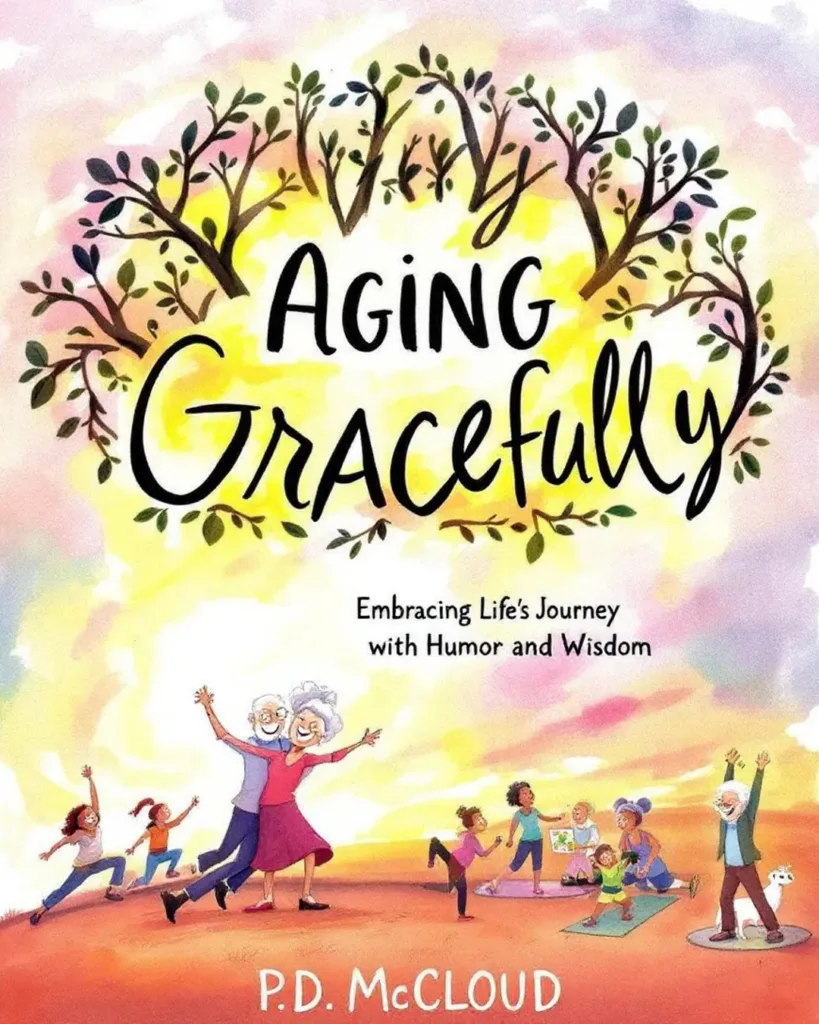Aging is a natural process, but it can be challenging. From adjusting to changes in physical abilities to navigating new health concerns, these hurdles can feel overwhelming at times. But with the right mindset and practical strategies, many of these challenges can be managed effectively, allowing you to maintain a fulfilling and vibrant life.
In this post, we’ll explore practical solutions to address common concerns associated with aging, from managing physical health to embracing technology that simplifies daily life. These actionable tips will help you thrive as you age gracefully.
Managing Physical Changes
As we age, our bodies undergo changes that can affect our vision, joints, and reflexes. These changes don’t have to limit our independence or enjoyment of life. In fact, we can proactively adopt habits and leverage available resources to navigate these transitions with ease. For example, we can take advantage of assistive devices, such as glasses and canes, to maintain our mobility and independence. We can also stay active and exercise regularly to maintain our strength and flexibility. And we can make dietary changes to maintain a healthy weight and blood sugar levels. By taking these proactive steps, we can age gracefully and continue to enjoy life to the fullest.
- As we age, our eyesight changes. We may find ourselves squinting at small print or struggling to read in dim light. Fortunately, there are solutions to help us read more comfortably. Some helpful strategies include using e-readers with customizable font sizes, listening to audiobooks, using magnifying glasses, and making sure our reading areas have adequate lighting. It’s also important to have regular eye check-ups to ensure that our vision is being properly corrected. If you are struggling to read, don’t hesitate to seek help from an eye care professional. They can determine the cause of your vision problems and recommend the best course of treatment.
- Joint and Mobility Care
Arthritis is a common condition that causes joint pain and stiffness. It can make it difficult to perform daily activities, and it can also lead to a decrease in mobility. There are many ways to manage arthritis pain, but one of the most effective is regular exercise. Low-impact exercises like swimming, yoga, or Tai Chi can improve flexibility, strengthen muscles, and alleviate joint stiffness. Many community centers now offer senior-friendly fitness classes that provide an excellent opportunity to stay active while connecting with others. If you are suffering from arthritis pain, talk to your doctor about starting an exercise program that is right for you. - Balance and Falls
Falls are a major concern for older adults, but they can be prevented with a few simple adjustments. First, it’s important to maintain good balance, which can be improved with exercises such as yoga or standing leg lifts. Second, it’s helpful to reduce tripping hazards in the home by securing rugs, installing grab bars in bathrooms, and ensuring adequate lighting in hallways and staircases.
Staying Mentally Sharp
Cognitive health is just as important as physical health, especially as we age. While mild memory lapses are a normal part of aging, there are things you can do to keep your mind sharp and engaged. This post discusses strategies for staying mentally sharp as you age. These strategies include exercising your brain, eating a healthy diet, and getting enough sleep. These strategies will help you maintain your cognitive health as you age.
- Brain-Stimulating Activities
As we age, keeping our minds active is just as important as keeping our bodies active. Fortunately, there are many ways to keep your mind sharp. One great way is to use brain-training apps and puzzles. These apps and puzzles provide a challenging workout for your brain, and they can help you stay mentally fit. Another great way to keep your mind active is to learn new skills. Learning new skills, such as playing a musical instrument or knitting, can boost cognitive function and provide a sense of accomplishment. - Lifelong Learning
As we age, keeping our minds active is just as important as keeping our bodies active. Fortunately, there are many ways to keep your mind sharp. One great way is to take advantage of the many courses offered by local libraries, community colleges, and online platforms like Coursera and Udemy. These courses are tailored to all ages, and cover a wide range of topics, from learning a new language to studying art history. Staying curious and engaged can help stave off cognitive decline and bring joy to your daily routine. There are many benefits to keeping your mind active as you age. For one, it can help you stay sharp and stave off cognitive decline. Additionally, learning new things can be a lot of fun, and it can help you stay engaged with the world around you. So, if you’re looking for a way to keep your mind active, consider taking a class or workshop at your local library or community college, or check out one of the many online courses available on platforms like Coursera and Udemy. - Social Interaction
Social interaction is essential for mental and emotional well-being. It stimulates the brain and provides a much-needed sense of connection. Join a book club, attend community events, or simply catch up with friends and family over coffee. These activities provide opportunities for meaningful conversations, which are essential for mental and emotional well-being.
Leveraging Technology
Technology is not just for the younger generations. It can offer countless benefits for older adults as well. Embracing technology can simplify your daily tasks, enhance your safety, and keep you connected to loved ones. Technology can also provide opportunities for learning and personal growth, and it can help you stay engaged with the world around you. So don’t be afraid to embrace technology. It can be a valuable tool for older adults.
- Smart Devices
Voice-activated assistants like Amazon, Alexa, or Google Home can help you with a variety of tasks, from playing music to controlling household appliances. They can also provide reminders and notifications, which can be a great help in managing your busy life. Smart home devices, such as automated lights and security systems, can add convenience and peace of mind by making it easier to control your home’s environment. For example, you can use your voice to turn on the lights when you enter a room, or to adjust the thermostat to your desired temperature. Smart home devices can also be programmed to turn on or off at specific times, which can be a great help when you are away from home. - Telehealth
With the advent of telehealth, it is now possible to consult with healthcare professionals, manage prescriptions, and monitor chronic conditions—all from the comfort of your own home. Virtual doctor visits are becoming more common, making it easier than ever to access medical care without leaving the house. Telehealth is an important advance in healthcare technology that can improve access to care and reduce costs. - Social Media and Video Calls
Many seniors find joy in using social media to reconnect with old friends and share life updates with loved ones. But did you know that social media platforms like Zoom, Skype, or WhatsApp can also be used to stay in touch with family and friends no matter where they are? These platforms can be a great way to stay connected with family and friends who live far away, especially if you don’t get to see them often. They can also be a great way to stay in touch with friends who have moved away.
Prioritizing Nutrition
A balanced diet is crucial for maintaining energy and overall health. Aging bodies have unique nutritional needs, and making intentional food choices can greatly improve quality of life.
- Focus on Nutrient-Dense Foods
As we age, our bodies have unique nutritional needs. Making intentional food choices can greatly improve our quality of life. Foods rich in omega-3 fatty acids, such as salmon and walnuts, support brain health. Leafy greens and berries provide antioxidants that combat aging. Incorporating fruits, vegetables, whole grains, lean proteins, and healthy fats into your meals can greatly improve your quality of life. - Stay Hydrated
As we age, our bodies have unique nutritional needs. Making intentional food choices can greatly improve our quality of life. Foods rich in omega-3 fatty acids, such as salmon and walnuts, support brain health. Leafy greens and berries provide antioxidants that combat aging. Incorporating fruits, vegetables, whole grains, lean proteins, and healthy fats into your meals can greatly improve your quality of life. In addition to eating a healthy diet, staying active and maintaining a healthy weight are important factors in maintaining good health as we age. - Meal Planning
Planning meals around seasonal produce and incorporating variety can keep things exciting. It also ensures that you are eating the freshest and most nutritious options available. Preparing meals in advance can help reduce stress and ensure that you are eating nutritious options.
Social and Emotional Well-Being
Staying socially active is vital for emotional health and happiness. As we age, our social circles tend to shrink, which can lead to loneliness. Fortunately, there are plenty of ways to build and maintain connections, such as joining clubs or groups, volunteering, and participating in intergenerational programs. Here are a few tips for staying socially active:
- Make an effort to stay in touch with friends and family: Make a list of the people you want to stay in touch with and then schedule regular times to talk with them.
- Take a class or join a club: Learning something new is a great way to meet people who share your interests.
- Volunteer your time: Helping others is a wonderful way to give back to your community and make new friends.
- Participate in intergenerational programs: These programs bring together people of all ages, which can help you learn from each other and develop lasting relationships.
As we age, we face many challenges, but we can also find opportunities to adapt, grow, and thrive. By implementing practical solutions for our physical, mental, and social well-being, we can overcome hurdles and fully embrace the joys of aging. Whether it’s staying active, learning new skills, or building meaningful connections, every step we take is a step toward a vibrant and fulfilling life. What challenges have you faced as you age, and how have you addressed them? Share your tips and experiences in the comments below.
Join us next time as we explore how to adapt to physical and mental changes with grace and resilience.
#aginggracefully #healthyaging #seniorliving #lifelonglearning #wellnessjourney #stayactive #embracetechnology #mentalwellness #nutritionmatters #socialconnections


